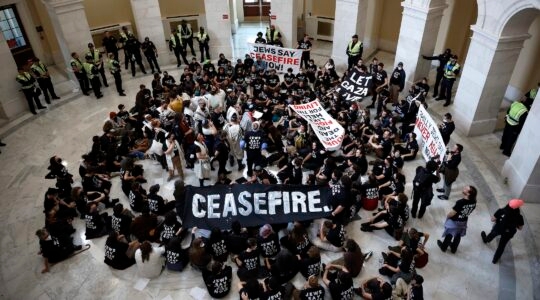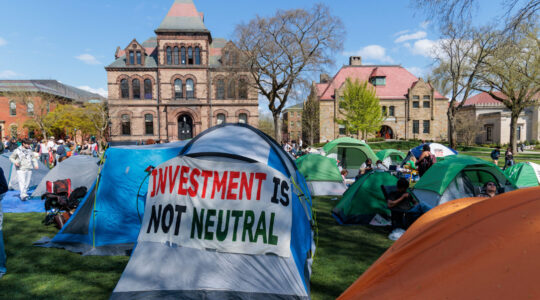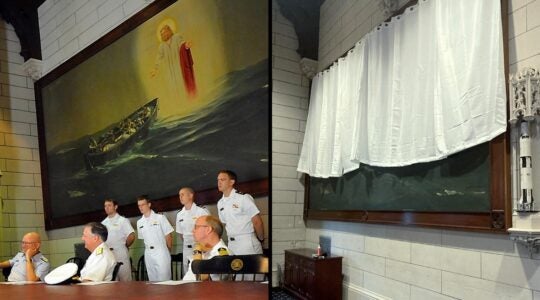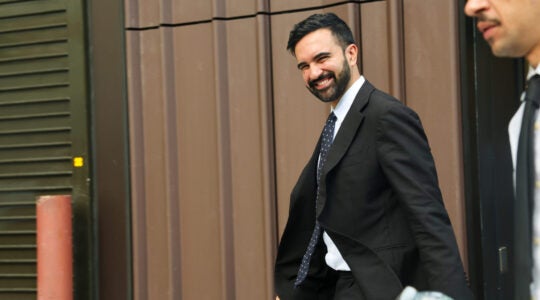Monday, The Jewish Education Project (Formerly BJENY-SAJES), JESNA, the Covenant Foundation and several other education groups held a mini-conference at the Jewish Federations’ General Assembly to look at innovations in Jewish education. Rabbi Shmuly Yanklowitz, the founder and president of the social justice group Uri L’Tzedek and the senior educator at Hillel at UCLA attended the conference. This is his takeaway:
Monday, I attended the morning conference at the General Assembly on Jewish Futures, organized by the creative and passionate David Bryfman. The banquet hall, packed with hundreds of Jewish leaders, showcased innovative projects such as Punk Media and Media Midrash, and dynamic speakers including Dr. Jon Woocher and Laurie Karr.
While the innovative ideas and sophisticated and important conversations proved the conference a success, I could not help but leave disconcerted.
The forum, as so many before it, centered on peoplehood. The discussion dealt with engagement, accessibility, and sociological trends. Even a text study at the session took this focus, as we compared Sukkot’s four species to different kinds of Jews.
Ori Brafman, an entrepreneur and writer, expressed what was perhaps the session’s most provocative and subversive comment
“What are the shared values for Jewish education?” he asked.
His question elicited no response, so he explained his take: Successful and growing communities have well-articulated shared values, but big-tent Judaism tends to neglect this.
So let me ask another question: Where is our Jewish values discourse?
When we think of what a Jewish future might look like in a decade, perhaps our primary emphasis should be not on increasing camp, school, and shul attendance. Perhaps it should be on more fundamental issues – values over numbers.
We must grapple with crucial topics like Jewish parenting and friendship, efforts to alleviate poverty, fewer scandals and more ethical workplaces, new ways to interpret Torah, and furthering transformational leadership for a brighter global and Jewish future from within our sacred tradition, through dynamic knowledge and spiritual activism.
The Jewish future discourse desperately needs to transition from one of peoplehood to one of values.
Encouraging students merely to follow their interests may ensure higher numbers of “engaged” young Jews, but that does little to ensure the Jewish spread of love, justice, and compassion into the world.
The language of “meaning” and “relevance” is important for crafting a collective vision but cannot replace “responsibility” and “service” in cultivating leadership. Simple fidelity to numbers-inflating engagement-promotion trends has a place, but it is not the summum bonum of Jewish life. We must have longer-term and deeper goals than getting bodies in the door.
If Jewish professional and lay leaders avoid wrestling with our time’s most pressing social, political, and moral issues, how can we expect our youth to do so?
Innovative social media is crucial for keeping us at the cutting edge of educational thought, but if the discourse is not guided by our most cherished traditional and modern values, then what do we mean when we talk about “fostering Judaism”?
Rabbi Shmuly Yanklowitz is the Founder & President of Uri L’Tzedek, the Senior Jewish Educator at UCLA and a 5th year PhD candidate at Columbia University in Moral Psychology & Epistemology.
JTA has documented Jewish history in real-time for over a century. Keep our journalism strong by joining us in supporting independent, award-winning reporting.





